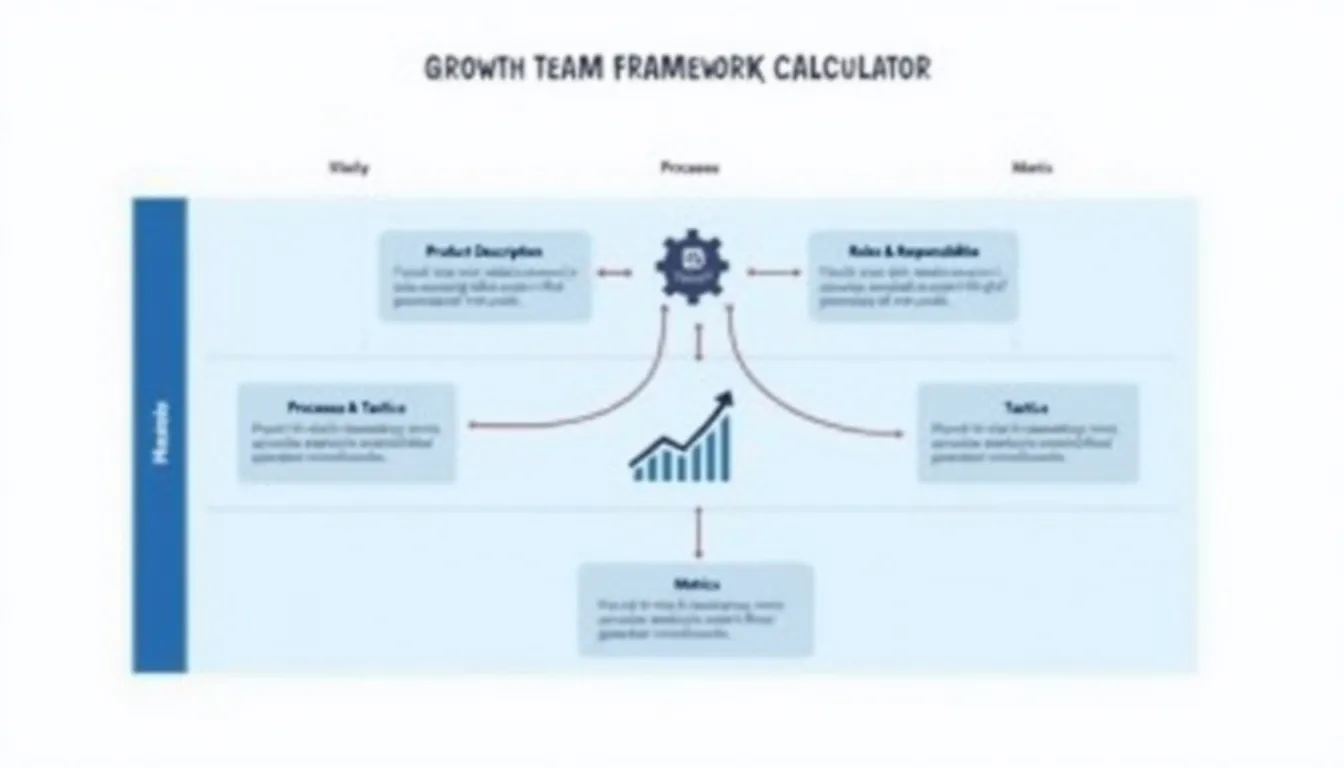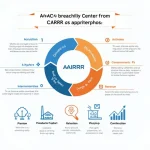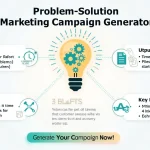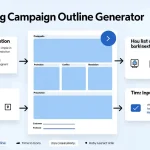Is this tool helpful?
How to use the tool
1. Describe your product or service
Explain what you sell and why customers care.
- Sample 1: “Subscription meal-prep kits tailored to vegan athletes.”
- Sample 2: “Cloud platform that predicts equipment failure for mid-size factories.”
2. List roles and responsibilities
Clarify ownership so tasks move quickly.
- Sample 1: “Growth Engineer: builds A/B tests and tracks impact.”
- Sample 2: “Lifecycle Marketer: designs email journeys and segment logic.”
3. Define supporting processes
State how the team meets, shares data and ships work.
- Sample 1: “Tuesday stand-up; Friday experiment review.”
- Sample 2: “Monthly OKR check-ins with finance and product.”
4. Add specific growth tactics
Pick tactics that fit your market stage.
- Sample 1: “Launch TikTok challenges with micro-creators.”
- Sample 2: “Offer API access to encourage platform integrations.”
5. Select metrics to track
Tie numbers to revenue and retention.
- Sample 1: “Activation rate (signup → first action) and weekly active users.”
- Sample 2: “Gross margin per customer and Net Promoter Score.”
Enter the five fields, press “Generate,” and the API returns a formatted roadmap plus plain-text copy for your clipboard.
Quick-Facts
- Cross-functional teams lift ROI on marketing experiments by 20 % (HBR, 2020).
- Average CAC for B2B SaaS in 2023: $1.32 per lead (OpenView Partners, 2023).
- Influencer campaigns earn 5.2× return on each dollar (Influencer Marketing Hub, 2023).
- Weekly sprint cycles shorten time-to-market by 35 % (State of Agile Report, 2022).
FAQ
What is the Growth Team Framework Calculator?
The calculator is an online form that converts five text inputs into a structured growth plan you can copy and share instantly, removing manual slide-making (Product Page, URL).
Which roles belong in a growth team?
Typical seats include Growth Lead, Engineer, Data Analyst, Designer and Marketer; each owns a KPI, reducing hand-offs (McKinsey, 2021).
How do I pick effective tactics?
Match tactics to funnel stages—SEO for awareness, referral loops for retention—then A/B test each idea for one sprint (CXL Guide, 2022).
Which metrics matter most?
Track a north-star metric (e.g., net revenue retention) plus two supporting metrics like CAC and activation to keep focus (Reforge, 2023).
How does the tool improve collaboration?
It forces shared language: one page lists roles, tactics and KPIs, so engineering, marketing and finance work from identical assumptions (Atlassian, 2022).
Is it suitable for startups?
Yes. You can fill it in under ten minutes, then iterate weekly without hiring external consultants (Y Combinator Library, 2023).
How often should I update my inputs?
Refresh every sprint or when a KPI stalls; frequent iteration drives compounding gains (State of Growth Report, 2023).
Is my data secure?
The form uses WordPress nonces and same-origin POST requests, protecting against CSRF and external access (WordPress Dev Docs, 2023).
Important Disclaimer
The calculations, results, and content provided by our tools are not guaranteed to be accurate, complete, or reliable. Users are responsible for verifying and interpreting the results. Our content and tools may contain errors, biases, or inconsistencies. We reserve the right to save inputs and outputs from our tools for the purposes of error debugging, bias identification, and performance improvement. External companies providing AI models used in our tools may also save and process data in accordance with their own policies. By using our tools, you consent to this data collection and processing. We reserve the right to limit the usage of our tools based on current usability factors. By using our tools, you acknowledge that you have read, understood, and agreed to this disclaimer. You accept the inherent risks and limitations associated with the use of our tools and services.







